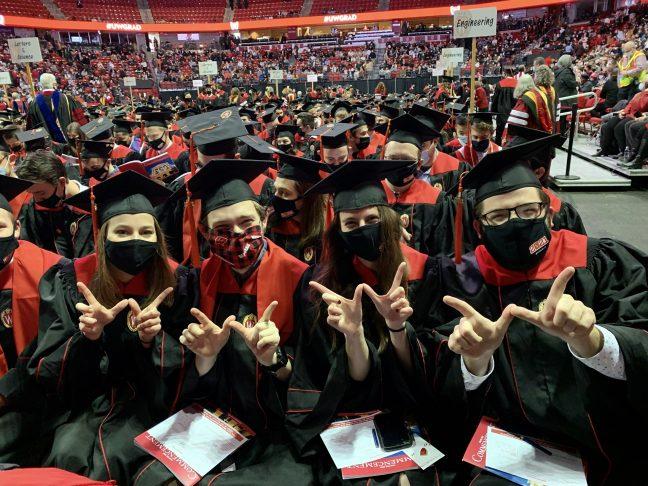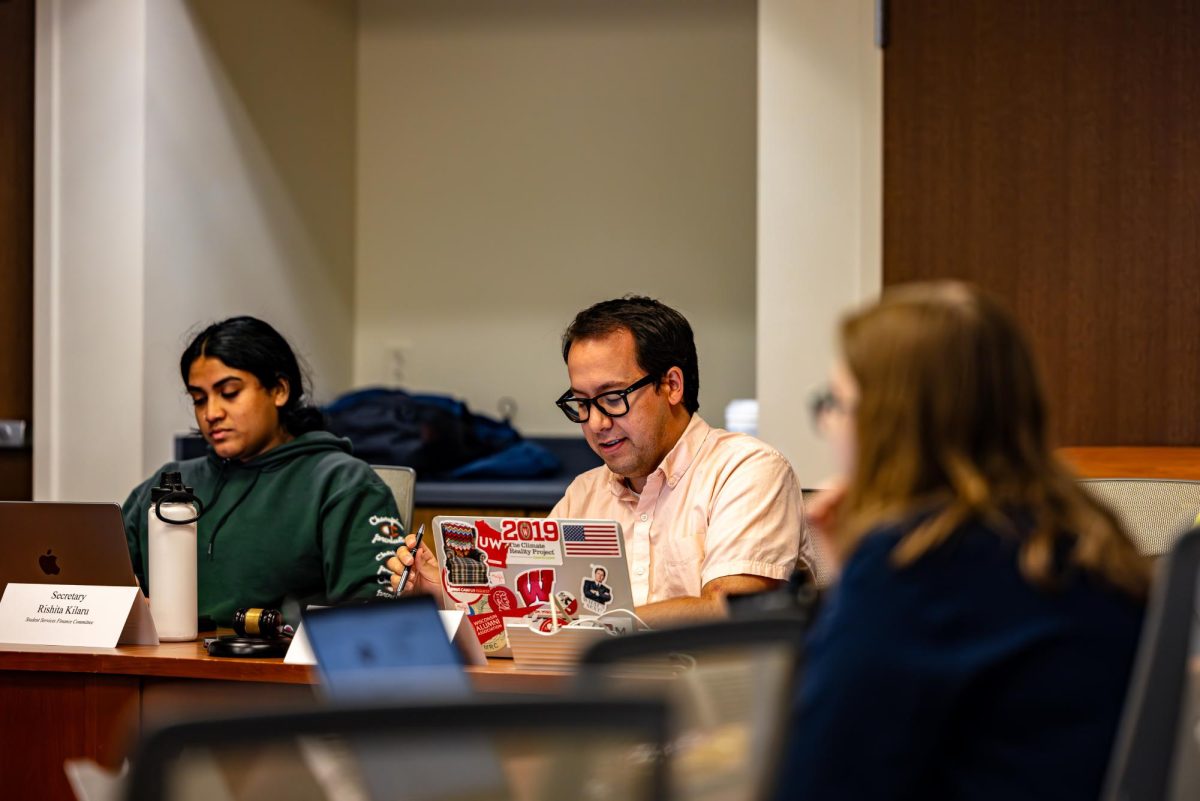University of Wisconsin School of Journalism & Mass Communications Professor Hemant Shah, who advocated for increasing the ethnic studies requirement for graduation in the 1990s, held his last in-person class Thursday, April 28.
In Shah’s absence, the need for more ethnic studies credits is still imperative, UW SJMC Professor and former mentee of Shah, Sue Robinson, said. She credited Shah and other people at UW with the current requirements in place.
In an interview with The Herald, Robinson — who Shah began mentoring when she came to UW in 2007 — reflected on her time with Shah.
“He’s brilliant, first of all. I learned so much studying him and the things that he wrote but also listening to him in meetings and when he counseled me privately,” Robinson said. “He has a very measured way of about him where he can take a problem and dissect it from all kinds of angles and understand the consequences of those actions.”
Currently, UW requires only three credit hours of ethnic studies. Adding another class requirement for graduation would help students develop an in-depth understanding of the struggles and cultures of specific ethnic groups, former Associated Students of Madison community engagement coordinator Crystal Zhao said.
Additionally, many basic ethnic studies courses cover a wide range of topics and don’t adequately cover niche issues faced by marginalized people, Zhao said. Learning specifics would effectively impact a student’s understanding of diversity, equity and inclusion, Zhao said.
Shah’s advocacy for increased ethnic studies requirements began during his time as director of Asian American Studies when he joined a general education subcommittee.
UPDATED: ASM passes legislation on tuition equity for undocumented students, anti semitism on campus
“We were trying to get more ethnic studies classes on the books,” Shah said. “So we were asking different departments and individuals to consider creating a course that would qualify for the requirement.”
Originally, the ethnic studies requirement was meant to be six credits — or two classes — current Director of Asian American Studies and chair of the subcommittee overseeing ethnic studies requirements Lori Lopez said.
One of the major roadblocks at the time was that there weren’t enough courses available, Lopez said. Students would have felt like they were competing for enrollment in classes to graduate on time.
Last year, the ethnic studies shared governance committee met with the heads of every department at UW to discuss increasing classes that would satisfy an increased requirement for graduation, Zhao said.
But the resolution couldn’t pass because some departments felt like they couldn’t fit an additional three credits into their requirements and still ensure students could graduate in four years, Zhao said.
Despite this, ethnic studies and the lessons learned in them are intertwined in all fields of study, Zhao said.
“Every field of study and every career option has something related to diversity, equity and inclusion,” Zhao said. “Even if it’s not directly tied into it, it’s important for [students] to be good people and not be racist.”
University of Wisconsin honors six outstanding women of color
During the original push for increasing the requirement, a survey was sent to students who had taken three credits of ethnic studies, Shah said. The results showed a small but significant improvement in attitudes about diversity and inclusion.
Advocates for the increase at the time believed that adding three more credits would cause this number to improve further, Shah said.
“That’s why we wanted six credits,” Zhao said. “The faculty specifically wanted a lower level class and a higher level class and have that continuity throughout their [students] four years at UW-Madison.”
Though it isn’t certain, recent events might spark a surge of advocacy for another ethnic studies course, Shah said.
Activism for increased diversity on campus has been around for a long time, Shah said. The difference now is that more people have come on board.
Students and staff are working closely together to achieve this goal. Though it would be difficult for some schools to outright add a second course requirement, the UW academic planning council will be discussing the topic over the summer and during the fall 2023 semester, Lopez said.
Recent events, especially the BLM protests following the death of George Floyd, have also greatly contributed to the increase in public interest in diversity, equity and inclusion efforts, Shah said.
One of the reasons Shah was particularly valuable to the original movement for an increase in ethnic studies requirements was his ability to consider potential actions and outcomes without impulse or emotion, Robinson said.
“The more Hemants we can have for the longer, the better,” Robinson said.
Though Shah will be missed, an increased interest in DEI efforts by faculty, staff and the community can be expected, Robinson said.
While there is still a lot of work to be done, the compromise achieved by Shah and many others three decades ago is still an incredible accomplishment that should be acknowledged and celebrated, Robinson said.

















